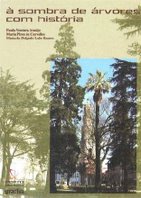Dia-com-santos
Some time ago I wrote a little book of this type and shape on St. Francis of Assisi; and some time after (I know not when or how, as the song says, and certainly not why) I promised to write a book of the same size, or the same smallness on St. Thomas Aquinas. The promise was Franciscan only in its rashness; and the parallel was very far from being Thomistic in its logic. You can make a sketch of St. Francis: you could only make a plan of St. Thomas, like the plan of a labyrinthine city.
(...) St. Francis was a lean and lively little man; thin as a thread and vibrant as a bowstring; and in his motions like an arrow from the bow. All his life was a series of plunges and scampers: darting after the beggar, dashing naked into the woods, tossing himself into the strange ship, hurling himself into the Sultan tent and offering to hurl himself into the fire. In appearance he must have been like a thin brown skeleton autumn leaf dancing eternally before the wind; but in truth it was he that was the wind.
St. Thomas was a huge heavy bull of a man, fat and slow and quiet; very mild and magnanimous but not very sociable; shy, even apart from the humility of holiness; and abstracted, even apart from his occasional and carefully concealed experiences of trance or ecstasy. St. Francis was so fiery and even fidgety that the ecclesiastics, before whom he appeared quite suddenly, thought he was a madman. St. Thomas was so stolid that the scholars, in the schools which he attended regularly, thought he was a dunce. Indeed, he was the sort of schoolboy, not unknown, who would much rather be thought a dunce than have his own dreams invaded, by more active or animated dunces.
This external contrast extends to almost every point in the two personalities. It was the paradox of St. Francis that while he was passionately fond of poems, he was rather distrustful of books. It was the outstanding fact about St. Thomas that he loved books and lived on books. (...) When asked for what he thanked God most, he answered simply, "I have understood every page I ever read." St. Francis was very vivid in his poems and rather vague in his documents; St. Thomas devoted his whole life to documenting whole systems of Pagan and Christian literature; and occasionally wrote a hymn like a man taking a holiday. They saw the same problem from different angles, of simplicity and subtlety; St. Francis thought it would be enough to pour out his heart to the Mohammedans, to persuade them not to worship Mahound. St. Thomas bothered his head with every hair-splitting distinction and deduction, about the Absolute or the Accident, merely to prevent them from misunderstanding Aristotle.
Every saint is a man before he is a saint; and a saint may be made of every sort or kind of man; and most of us will choose between these different types according to our different tastes. But I will confess that, while the romantic glory of St. Francis has lost nothing of its glamour for me, I have in later years grown to feel almost as much affection, or in some aspects even more, for this man who unconsciously inhabited a large heart and a large head, like one inheriting a large house, and exercised there an equally generous if rather more absent-minded hospitality. There are moments when St. Francis, the most unworldly man who ever walked the world, is almost too efficient for me.
(...) The saint is a medicine because he is an antidote. Indeed that is why the saint is often a martyr; he is mistaken for a poison because he is an antidote. He will generally be found restoring the world to sanity by exaggerating whatever the world neglects, which is by no means always the same element in every age. Yet each generation seeks its saint by instinct; and he is not what the people want, but rather what the people need. This is surely the very much mistaken meaning of those words to the first saints, "Ye are the salt of the earth". (...) Christ did not tell his apostles that they were only the excellent people, or the only excellent people, but that they were the exceptional people; the permanently incongruous and incompatible people; and the text about the salt of the earth is really as sharp and shrewd and tart as the taste of salt. It is because they were the exceptional people, that they must not lose their exceptional quality. "If salt lose its savour, wherewith shall it be salted?"(...) If the world grows too worldly, it can be rebuked by the Church; but if the Church grows too worldly, it cannot be adequately rebuked for worldliness by the world.
G.K. Chesterton, St. Thomas Aquinas (1933)






Sem comentários :
Enviar um comentário